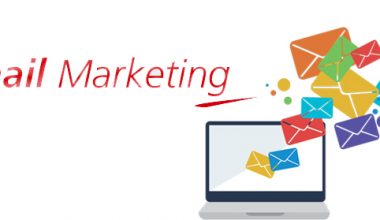Having the right tools can make or break a business. Choosing business tools is difficult. Find the right combination of tools to perform business tasks efficiently. In this post, we’ll discuss the top 10 analytical tools for business intelligence, digital, and free tools for small business owners to have a successful business.
Finding the right tool among so many software platforms is difficult. We’ve compiled a list of the best business tools to save you time.
What Do You Mean by Business Tool?
Business tools are used to complete specific tasks. Modern businesses use online tools and solutions to reduce costs. The best small business tools can save you time and money, boost productivity, reduce stress, and improve operations.
Tools for Business Intelligence
There are dozens of business intelligence tools available. These were the most-cited business intelligence tools on ten websites. These five business intelligence tools are not ranked in any order of importance.
#1. Microsoft Power BI
One of the most popular business intelligence tools is Microsoft’s Power BI. You can run analytics on the cloud or a reporting server with this downloadable software. This interactive tool syncs with Facebook, Oracle, and more to generate reports and dashboards. It comes with a Built-in AI, Excel integration, data connectors, end-to-end data encryption, and real-time access monitoring.
#2. Tableau
Tableau’s data visualization capabilities are user-friendly, but they can do more. Their product includes live visual analytics and a drag-and-drop interface for spotting data trends. Excel, Box, PDF files, Google Analytics, and more are supported. It connects to most databases.
#3. QlikSense
QlikSense is a self-service BI tool that supports guided apps, dashboards, and custom and embedded analytics. It has a touchscreen-friendly interface, AI, and high-performance cloud platforms. Its associative exploration capability, Search & Conversational Analytics, allows users to ask questions and uncover actionable insights, increasing data literacy for those new to BI tools.
#4. Dundas BI
25-year-old Dundas BI is a browser-based business intelligence tool. Dundas BI’s drag-and-drop function allows users to analyze data without IT help. The tool’s dashboards, reports, and visual analytics are interactive and flexible. Since its 1992 launch as a data visualization tool, it has evolved into an end-to-end analytics platform that can compete with new BI tools.
#5. Sisense
Sisense is a simple, streamlined BI tool. This tool can export Google Analytics, Salesforce, and other data. The in-chip technology allows faster data processing than other tools. White label analytics allow companies to fully customize their services. Drag-and-drop is supported. Sisense lets you share internal and external reports and dashboards.
Analytical Tools for Business
Business analysis tools help company owners analyze data and determine the best plan or priority to achieve their goals. Business analysts use several analytical tools. Here are the 10 most effective analytical tools used in business analysis that you can use.
#1. SWOT analysis
A SWOT analysis examines internal and external factors affecting a company’s performance. This analysis is done before a company launches new plans, especially marketing strategies. This analysis must include strengths, weaknesses, opportunities, and threats. Internal factors include company strengths and weaknesses. The external analysis examines external factors. These factors are categorized as business opportunities and threats.
#2. PEST analysis
PEST analysis analyzes the outside impacts on a company’s performance. Business owners are given external factors that directly and indirectly affect their businesses during analysis.
#3. MOST analysis
This method is useful for companies performing internal analysis because it helps owners stay on track. Mission, objectives, strategies, and tactics comprise MOST. The business must define where they want to drive their business, what goals they need to achieve their mission, a detailed plan, and how to execute the defined plan.
#4. Heptalysis
This model evaluates a business venture’s important factors at the outset. Market opportunity, product or solution, execution plan, financial engine, human capital, potential return, and margin of safety are analyzed.
#5. De Bono’s six thinking hats
This method is best for business ideas. This analysis helps you generate and evaluate ideas during brainstorming. However, this analytical tool restricts thinking. De Bono’s Six Thinking Hats are facts, creativity, positivity, negativity, emotions, and control.
#6. Catwoe
This business analysis forces businessmen to set goals quickly. This analytical tool has 6 essential factors: customers, actors, transformation process, worldview, owners, and environmental constraints.
#7. Five whys
This analytical tool is used to identify the causes of a problem. It gives owners an overview of their businesses’ health.
#8. MoSCoW
When a business has many tasks to handle and needs to prioritize, it uses analytical tools. By listing and analyzing tasks, business owners can quickly decide on task requirements. This analytical tool has 4 factors: must, should, could, and won’t.
#9. SCRS analysis
SCRS is an analytical business tool. Using this method, the company follows the current state and business strategy requirements to find solutions. Strategy, current state, requirements, and solution are abbreviated in the tool’s name.
#10. VPEC-T analysis
This analysis helps users make decisions when comparing different system expectations. Values, policies, events, content, and trust describe this tool.
When doing business analysis, a company can use various analytical tools. Each of these analytical tools is suitable for a particular business based on its goal, current situation, etc., so business owners should choose carefully.
Top 10 Business Tools
Business is expensive. You need a website, a branding expert, and some cool software to get started. You’ll need a bean bag chair, office space, and supplies. Most new entrepreneurs panic just reading this. In this section, we’ll list the top 10 free business tools.
Top 10 Free Business Tools
#1. Google Doc
You don’t need expensive office suite software, despite what you’ve heard. Google’s free. Documents, spreadsheets, slides, and forms. You can run almost your entire business with Google apps. You can access your files from anywhere on any device. Furthermore, you’ll never lose important papers.
#2. Trello
Organize! Once you start a business, you realize you can’t keep track of projects and to-do lists in your head, on napkins, or on scraps of notebook paper. I love Trello because… Trello is a project management tool that organizes all your tasks and to-do lists on one website. Unlimited boards, lists, cards, members, checklists, and attachments come with Trello’s free plan.
#3. Zapier
Now that you’ve set up Google Docs and Trello, meet Zapier. Zapier connects apps online. You could set up a ‘zap’ that creates a Trello card whenever you create a Google Doc. You could also send an automated email to webinar signups.
#4. Mailchimp
Mailchimp is great if you’re just starting your email list. This is one of the most popular email providers online, and they offer a free account until you reach 2,000 subscribers. You won’t pay to send emails until you have a large list.
#5. Pexels
Stock photos are needed for email, Facebook ads, and business brochures. You can’t use a Google image for your business. Copyright infringement is “illegal” We don’t want you jailed. Pexels has thousands of royalty-free images for your business.
#6. Conva
After getting the images, edit them. There are many graphic design tools, but Canva, a free online photo editor, lets you create branded and personalized graphics for newsletters, brochures, and social media posts. Choose from Canva’s image library or your own (some of which you have to pay for, but a good portion are free). Download your artwork to your computer for print and digital marketing.
#7. Buffer
Using a tool like Buffer, schedule your social media graphics across accounts. When running a business, you don’t have time to sit down and post to social media, so use Buffer to automate those tasks.
#8. Bit.ly
Long URLs look bad. True. Bit.ly personalized links increase clickability. These conversion-inducing links provide click statistics. It simplifies marketing.
#9. Wave
Want to look professional on your first invoice? Wave is online invoicing software. Wave lets you send clients professional-looking invoices. You can track who’s paid so you can send “reminders”
#10. UberConference
If you run an online business, you’ll need virtual client meetings (unless you have the cash to fly around the country for coffee dates). UberConference makes online meetings easy. The free plan allows 45-minute calls with 10 people. During the meeting, you can share your screen and record in HD.
What are the 5 Management Tools?
Globally, these five management tools were most popular in 2013:
- Strategic planning
- Customer relationship management,
- Employee engagement surveys,
- Benchmarking, and balanced scorecards.
Other Free Tools for Small Business Owners
#1. HubSpot CRM
HubSpot is a free business CRM software tool for small business owners who want to run inbound marketing campaigns or share traffic and revenue insights. This convenient tool combines sales, marketing, and customer service on one platform. You can track deals, monitor campaign performance, schedule social media posts, and more.
#2. Slack
Slack is another free small business owner’s tool for collaborating. This messaging app lets you connect and collaborate regardless of location or time zone. Slack lets you create channels for specific tasks or topics, facilitate group discussions, have one-off conversations, and share files.
#3. Asana
Asana is free for up to 15 users and is a great business task manager. Furthermore, Asana helps your team manage tasks and collaborate remotely. Track project progress, identify bottlenecks, and streamline workflows. Asana’s visually appealing user interface makes it a popular project management tool for small business owners.
#4. Calendly
Calendly is a free online scheduler. Small businesses and startups love Calendly for scheduling. You can easily book meetings and appointments, save time on back-and-forth emails, send reminders and thank you notes, and reschedule meetings.
#5. WordPress
WordPress is a free business blog management tool. You can use a web hosting service to build a website, manage a blog, and sell items without coding. Plugins can create contact forms, calendars, and more.
#6. SignEasy
SignEasy helps small business owners sign and send documents with a few clicks. You can easily collect signatures for important documents and close deals on the same day, no matter where you are. Furthermore, SignEasy handles business and scanning so you don’t have to.
#7. Flickr
Flickr has copyright-free images. This website has billions of images if you’re not a skilled photographer. Flickr has photos for blogs, social media, flyers, and other marketing materials.
Are Business Tools Important?
Yes! A company’s success depends on its productivity. Digital business tools also help. Having the right tools means smoother operations, which motivates employees because they’ll encounter fewer problems.
Digital Tools for Business
Here is a list of digital tools for business purposes below:
#1. Chat and collaboration: Slack
In life and in business, communication is key. Making sure everyone is informed and on the same page is key to avoiding miscommunication problems.
#2. Video conferencing: Google Meet
This is one of the digital tools for business as video conferencing is a must for online meetings and events in a freelance or remote world.
#3. Digital publishing: Flipsnack
Small businesses need a catalog, brochure, or other promotional material to showcase their products or services.
If you own a small business — or any business — promoting it on social media is a must, but keeping up with posts and messages is a nightmare without Buffer.
#5. Email marketing: Mailchimp
Social media is one of the most important ways to promote your business, but email is still preferred by 73% of consumers.
#6. Accounting and invoicing: FreshBooks
One of the most daunting aspects of owning a business is dealing with papers, money, and invoicing. If you’re an accountant who enjoys handling finances and books, thank you for doing the dirty work for the rest of us.
#7. Website performance: Google Analytics
Google Analytics may be unfamiliar to new business owners. It’s a must-have for any online business.
#8. Mind Mapping: LucidChart
The ability to visualize things clearly is crucial for business owners when planning, building strategies, and defining what’s important.
What are Different Tools Used in Business?
These tools save time and money in business:
- Task management tools.
- Email and social marketing.
- Social media scheduling tools.
- Scheduling meetings.
- Obtaining e-Signatures.
- Finding and retaining business clients.
- Document collaboration.
What is the Most Useful Business Tool?
- Task management tools
- Time-tracking tools
- Social media scheduling tools
- Project management software
- Communication tools
- Meeting scheduler apps
- eSignature software
What are the 5 Common Business Tools and Technologies?
The 5 Most Common Types of Business Technology
- Computers. Computers are used across multiple businesses.
- Software. Computers use different kinds of programs and operating information, known as software, to do specific tasks.
- Networking.
- Telephone communication
- Accounting system.
- Inventory control system.
Conclusion
The list of 10 free analytical tools for business intelligence, digital, and small business owners isn’t exhaustive. Your business’s size, maturity, industry, and budget will determine which digital tools you buy for your business. The value of business tools that automate mundane tasks can’t be overstated.
Start slowly. Try out a few of these tools to see which ones work for you. Ask your team, clients, and partners who they like working with. After identifying a few, scale them up.
Tools for Business FAQs
How are software applications used in business?
Application software includes business software. These programs improve business accuracy, efficiency, and effectiveness by saving time and boosting productivity.
What equipment do I need to start a business?
Computers and smartphones, Internet and communications, Printer and shredder, Security systems, Company vehicle, Shipping tools, Specialty equipment, and All-in-one software.
{
“@context”: “https://schema.org”,
“@type”: “FAQPage”,
“mainEntity”: [
{
“@type”: “Question”,
“name”: “How are software applications used in business?”,
“acceptedAnswer”: {
“@type”: “Answer”,
“text”: “
Application software includes business software. These programs improve business accuracy, efficiency, and effectiveness by saving time and boosting productivity.
“
}
}
, {
“@type”: “Question”,
“name”: “What equipment do I need to start a business?”,
“acceptedAnswer”: {
“@type”: “Answer”,
“text”: “
Computers and smartphones, Internet and communications, Printer and shredder, Security systems, Company vehicle, Shipping tools, Specialty equipment, and All-in-one software.
“
}
}
]
}






